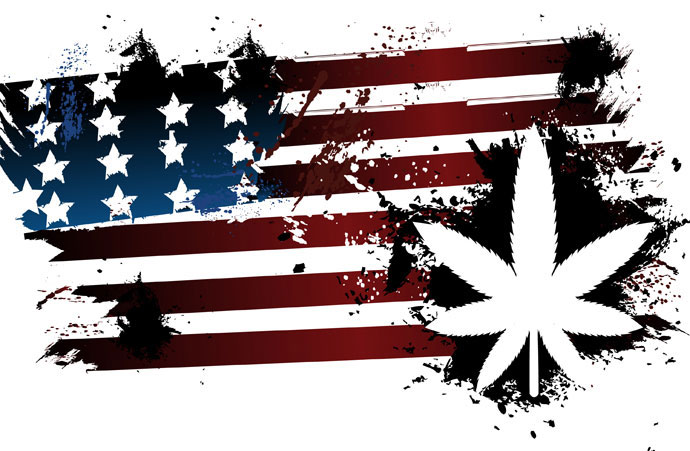Marijuana Tax Revenues Continue To Surge In Colorado And Washington, Crime Rates Decline: When Will The Rest Of The Country Follow?
Contrary to warnings issued in the cult-classic “Reefer Madness,” Colorado’s and Washington’s legalization of recreational marijuana sale and use did not result in rape, suicide, insanity and mass hysteria. In fact, if recent data is any indication, decriminalization has done just the opposite. Not only is tax revenue in the two states steadily blossoming, but crime rates are taking a nosedive. Although it may still be too early to draw a firm conclusion, the facts thus far are swaying many to ask how legalization could benefit other states — or even the nation as a whole.
Colorado Reaps The Benefits
Of course the hardest data comes out of Colorado, which decriminalized marijuana possession in late 2013 before legalizing its sale from authorized dispensaries beginning this year. According to Denver’s Department of Safety Public Information Standards, Colorado’s major metropolitan area saw a 4-percent decrease in violent crime between the January through August periods of 2013 to 2014, most significantly a 30-percent drop in homicide rates and a 15-percent decrease in the number of sexual assaults. Furthermore, property crimes — including robbery, larceny and auto theft — fell by 9.9 percent during the same period.
“Every major institution said this would be horrible and lead to violence and blood in the streets,” Brian Vicente, one of the authors of Amendment 64, which legalized marijuana in Colorado, told the New York Times. “None of that’s happened. The sky did not fall.”
Perhaps more impressive is the increased tax revenue Colorado is now enjoying from both residents and tourists. In the first six months of 2014, Colorado collected $18.9 million in taxes from recreational marijuana sales alone. And the Colorado Center of Law and Policy projects the state could save as much as $40 million per year in costs associated with enforcing marijuana prohibition.
Not only is Colorado enjoying the additional tax revenue, but the regulated marijuana industry is also boosting the state’s economy by creating jobs. As of May 1, the Marijuana Enforcement Division has issued 9,641 employee badges, required for anyone who directly handles marijuana. Furthermore, although a direct association cannot be proven, Colorado’s tourism industry has been booming since recreational marijuana’s Jan. 1 legalization. According to a report from the Marijuana Policy Group, marijuana demand by visitors to the state is estimated at 8.9 metric tons in 2014—about 44 percent of metro area sales and as much as 90 percent of retail sales in heavily-visited mountain communities.
Washington Follows Suit
In the first two months that the recreational use of marijuana was legal in Washington, the state has found that green isn’t merely the color of weed. Quickly picking up steam, Washington’s marijuana industry has collected more than $3 million in taxes and generated more than $12 million in overall revenue, according to the Washington State Liquor Control Board. It may be too soon to draw conclusions from the small amount of data, but sales doubled in August to $6.9 million from July’s initial $3.2 million. Tax revenue also more than doubled from legalization’s first to second month. Further data indicates the revenue will continue to grow, as Washington saw $1.9 million in sales during the first eight days of September, leaving it on pace for $7.1 million for the month — an amount that would garner $1.8 million in taxes.
Federal Implications
Colorado and Washington offer evidence that the nation as a whole could easily befit from the repeal of marijuana prohibition. Individual state as well as federal dollars currently spent on enforcing marijuana laws can be redirected to more worthy causes. Not only would governments save money on law enforcement, but the amount of taxes that could be collected on a booming marijuana industry could go far in alleviating a subsisting federal deficit, currently about $128 billion. Just think about it: Both Washington and Colorado apply a 25-percent sales tax and excise tax to marijuana — paid by growers, processors and retailers before additional taxes are paid by consumers. If the Alcohol and Tobacco Tax and Trade Bureau were to apply a federal marijuana tax much as it taxes alcohol and tobacco products, that money could do wonders for federal revenue without increasing other sales or income taxes. It seems like a no-brainer, doesn’t it?










































